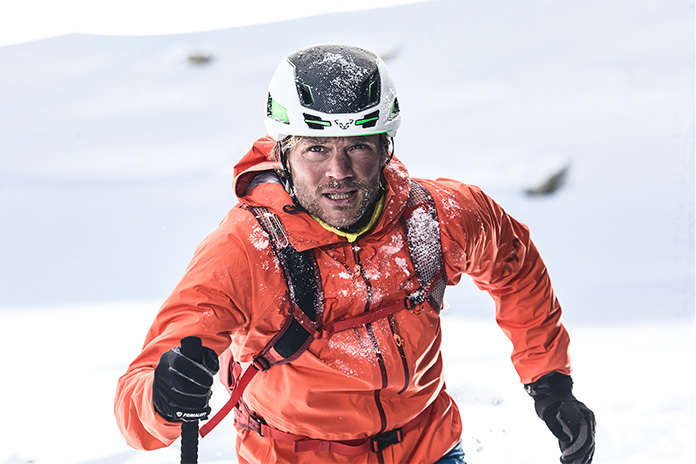
WHAT does mountaineering have in common with business?
“A lot,” according to Benedikt Böhm, a successful brand manager and one of the world’s most famous speed mountaineers. Reduction to essentials, he says, is the success formula on the way to the top.
The native of Munich has been active in competitive sports since he was 10 and subsequently became a member of the national ski mountaineering team. He’s climbed several eight-thousanders.
In 2012, Böhm survived an avalanche in the Himalayan region, in which 11 mountaineers died, and produced a documentary about it (7 Days in September). Since 2003, he’s been CEO of ski touring equipment supplier Dynafit that evolved from insolvency into the world market leader. In the most recent project that’s near and dear to him – Helping Band, Bracelets for a Better World – he’s raising funds for sustainability projects together with the WWF.
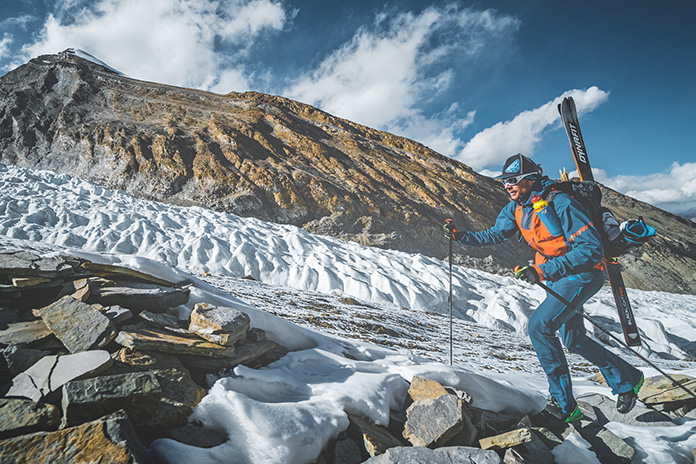
What is essential on the way to achieving a goal? How can mountaineering be applied to business?
It’s the art of omission. If you want to reach your goal faster than your competitor you have to be lightweight. Mountaineers do without any gram or ounce that’s not needed, cutting off any superfluous little ribbon. Related to business, light weight means communicating messages that are easy to understand. That’s not just about an intuitive product but about customer loyalty and reaching out to customers. It’s important for the message to come across in just a few words. It takes in-depth knowledge of details to boil it down to the essence.
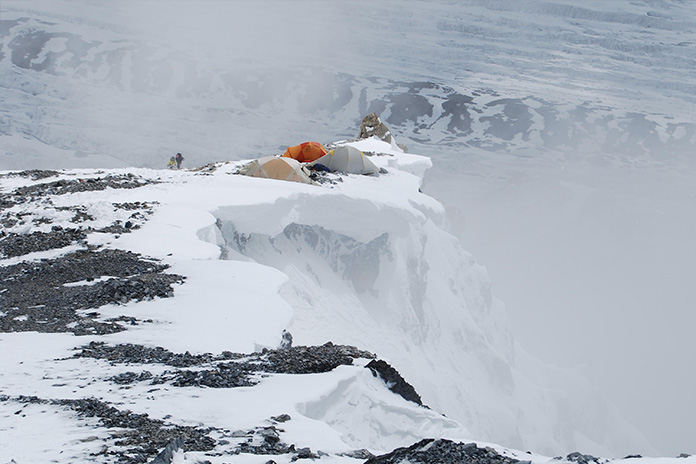
Have you ever gone over the top in terms of reduction and painfully missed an item that you didn’t pack?
Not where it really mattered, in other words, in mountains of more than 4,000 meters. That’s where your preparation has to be absolutely right and perfecting it was a long journey. Today, I climb with just six kilograms. I believe that most people don’t go to the office carrying six kilograms.
What technical gadget would you have problems doing without in your everyday life?
My smartphone because it saves a lot of time. For me, it’s an object of minimal maximum, as well as both a blessing and a curse. I notice that on expeditions, on which I suffer from total digital detox. The first days are like going through withdrawal but afterwards I do realize that humans actually need almost nothing.
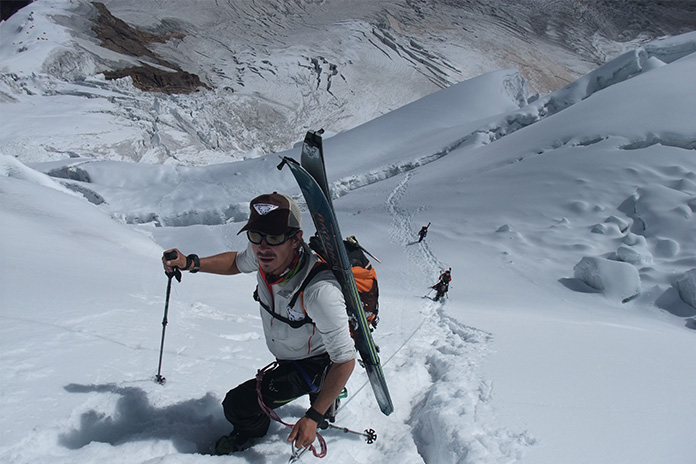
One of your core propositions is: Life is like mountaineering; you don’t achieve your goals without reducing to the essentials. How do you mean that?
We Central Europeans own an average of 25,000 to 30,000 physical products but have only some 600,000 hours of life available for managing them. Knowing that puts owning things into perspective. People often ask me: How do you manage to handle all that? A family with three children, a company with more than 400 employees, and your sport and your expeditions at the same time. It’s uncompromising allocation of time. You need to choose a pathway, otherwise you’ll get lost. 80 percent of success — both professional and personal — is preparation, 20% is flexibility.
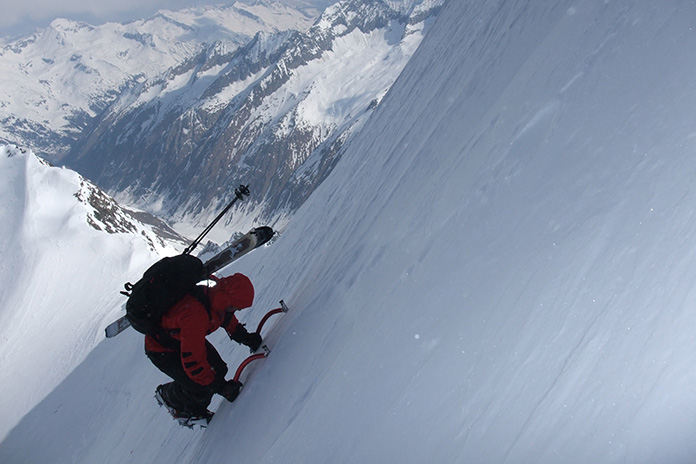
What tips do you have for people who find it hard to make choices? How can someone reduce their fear on their journey toward reaching a goal?
In life, just like a tightrope walker in a circus, we should be prepared well enough to replace our fear by mindfulness. I’ve been in life-threatening situations in which I felt no fear simply because I had to fight for survival. My urgent recommendation is to find a sparring partner. Someone that challenges and encourages you. Someone that you can share your fears with. There are many well-known examples of companies that were led to success by a duo. Current cases in point are Biontech or Apple, Google and Microsoft as well. In that regard, the American culture is the better one. Going into business for yourself when you’ve got nothing to lose, when your expectations are low.
The world is changing faster than ever. How does reduction help achieve positive change?
We all need to reduce to some extent if we want to continue living in this world. For instance, not replacing defective products immediately by new ones is helpful. Instead, they should be repairable. In keeping with the belief that “The most sustainable product is the one you have.” Top quality provides an opportunity for harmonizing ecology and economy.
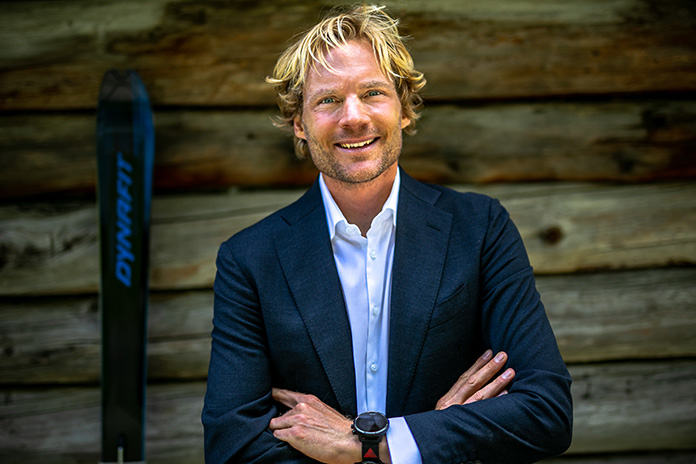
You’ve revived mountaineering equipment supplier Dynafit – also by means of reduction?
Yes, in the first year we eliminated half of our product range and, even so, doubled our sales. In our strategy development process, we very often ask ourselves: Now what are we not going to do so that we won’t spread ourselves too thin? Here’s an example: We’re still not selling via Amazon because we believe that one reason why Dynafit is so attractive as a brand is because it’s not available everywhere.
Images © Dynafit
This article originally appeared in tomorrow (schaeffler-tomorrow.com)





















